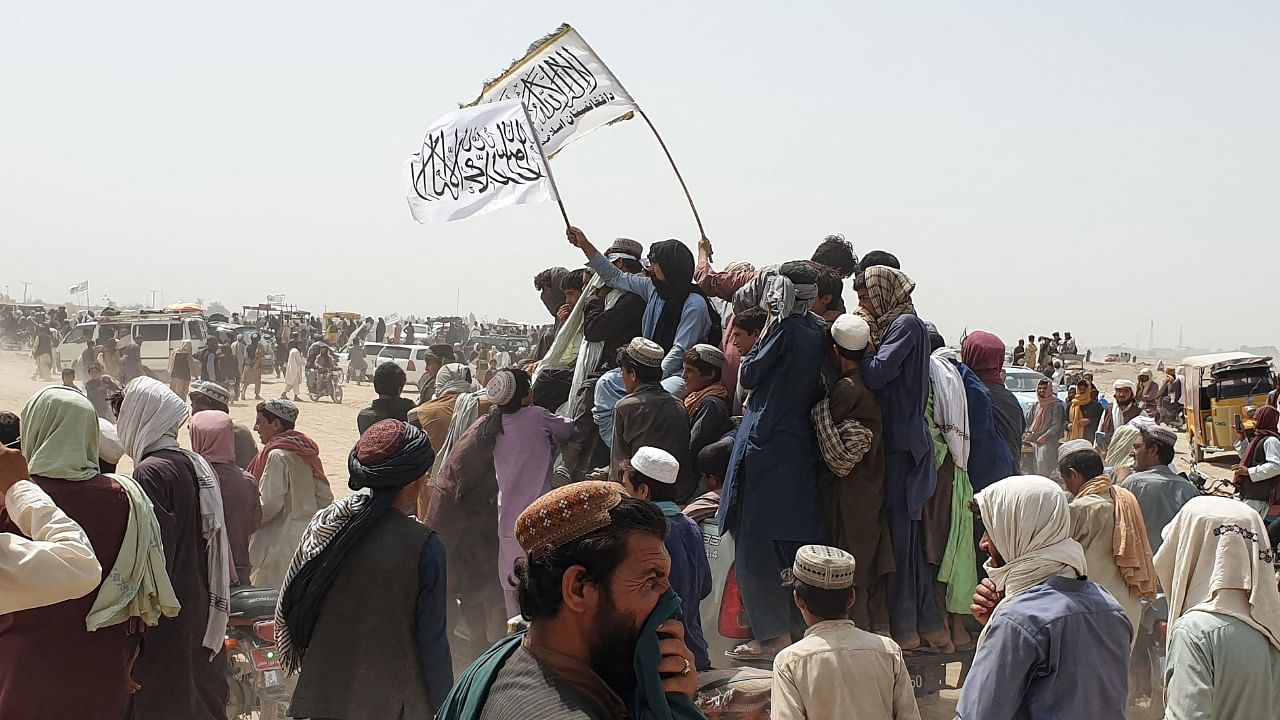
The average Indian first got a full grasp of the Taliban in December 1999. The newspapers splashed across the front-pages the pictures of the men in traditional perahaan-tunbaan with lungee on heads brandishing rocket-launchers and AK-47s and guarding the hijacked Indian Airlines aircraft on the tarmac of the airport in Kandahar in south Afghanistan. Soon no one was left with an iota of doubt about the active support the Taliban provided to the hijackers and their handlers in Pakistan. The people of India woke up to the fact that the militia of Hindu Kush was never a faraway menace, but inextricably linked to the terror infrastructure that thrived just across the country’s western border.
Over two decades have passed and much water has flown down Argandhab – the river that passes by Kandahar. The “Operation Enduring Freedom” launched by the United States and its allies soon after the September 11, 2001 terror attacks by Al Qaeda removed the Taliban from power in Afghanistan. But after fighting for 20 years, spending two trillion dollars and losing thousands of its soldiers, the US is now “closing the book” on its war in Afghanistan, leaving the conflict-ravaged country again at the mercy of the Taliban. Even as it is still pursuing a political process and holding talks with President Ashraf Ghani’s government in Doha, the Taliban let loose its militants to fight the soldiers of the Afghan National Defence and Security Force (ANDSF) and wrest control of the country, district by district. The Sunni Muslim militia recently claimed to have occupied 85% of the territory of Afghanistan. Intense fighting is on around Kandahar, as the Taliban is trying to take back the province, which had once been its spiritual and political base. As 13 of the 15 districts of the province already went under the control of the Taliban, New Delhi recently brought back home its officials and security personnel, who were posted at the Consulate General of India in Kandahar. Pakistan, on the other hand, threatened to deploy its fighter jets and choppers to repel any attempt by the army or air force of Afghanistan to take back Spin Boldak – a border crossing between the two countries – from the Taliban. Not much has apparently changed between December 1999 and July 2021, when it comes to collusion between the Taliban and Pakistan.
Diplomatic relations
India snapped its diplomatic relations with Afghanistan after the Taliban wrested power in Kabul in 1996. So did most of the international community, barring Saudi Arabia, United Arab Emirates and of course Pakistan. New Delhi re-established its diplomatic relations with Kabul after the Taliban was removed from power and an interim government led by President Hamid Karzai took office in December 2001. India spent $3 billion over the past 20 years for reconstruction of war-torn Afghanistan, including major infrastructure projects like construction of Afghan Parliament building in Kabul and the Salma Dam in Herat. As India won hearts in Afghanistan, it obviously sent jitters to Pakistan. So the Embassy of India in Kabul and its consulates in Jalalabad, Mazar-e-Sharif and Kandahar repeatedly came under attacks by the terrorists. A number of Indians working in the development projects in Afghanistan were kidnapped or injured or killed in the terror attacks.
New Delhi refrained from sending troops to Afghanistan and but did provide training to officials and soldiers of ANDSF in India, in addition to supplying non-lethal military hardware. India also provided a few MI-25 helicopters to the Afghan Air Force, beginning with one in 2015.
The US withdrawal and resurgence of Taliban will undoubtedly give Pakistan the “strategic depth” it has been trying to gain in Afghanistan. This has what set the alarm bells ringing in New Delhi.
The Taliban’s return to power in Kabul will not only bring back its near-medieval rule over Afghanistan, but will also turn into a security nightmare for India. It will eventually give a fillip to the extremist forces active in the region, including the Lashkar-e-Tayyiba and Jaish-e-Mohammed, which Pakistan has been using against India. It does not augur well for Jammu and Kashmir, where the Prime Minister Narendra Modi’s government is planning to hold elections. Pakistan’s “all-weather strategic partner” China is also keen spread its tentacles in Afghanistan and has no problem accepting Taliban in power in Kabul as long as it does not extend support to East Turkestan Army of the Uyghurs. The Taliban also sought to send out a message when its spokesperson Suhail Shaheen acknowledged Kashmir as an internal matter of India. But that was clearly not enough for New Delhi to be reassured.
Not that India has been caught unawares by the US withdrawal from Afghanistan. New Delhi has in fact been reaching out to Taliban and had informal engagement with the leaders of the militia over the past couple of years, reversing its earlier policy. But External Affairs Minister S Jaishankar did point out that the Taliban’s return to power in Afghanistan through violence and without a political process would lack legitimacy.
But what can New Delhi do? Jaishankar recently visited Tehran and Moscow, fuelling speculation about revival of the “Northern Alliance” by India, Iran and Russia to deal with the emerging situation in Afghanistan. His counterpart in Moscow, Sergey Lavrov, said that Russia would not step in as long as the Taliban would keep its military advances limited within the borders of Afghanistan. The response from Iranian Foreign Minister Javad Zarif too apparently was not very encouraging. Interestingly, both Iranian and Russian governments hosted the leaders of Taliban around the same time when the External Affairs Minister was in Tehran and Moscow. The US of course is little bothered about what would happen in Afghanistan after its withdrawal. So, India is clearly left to fend for itself.
